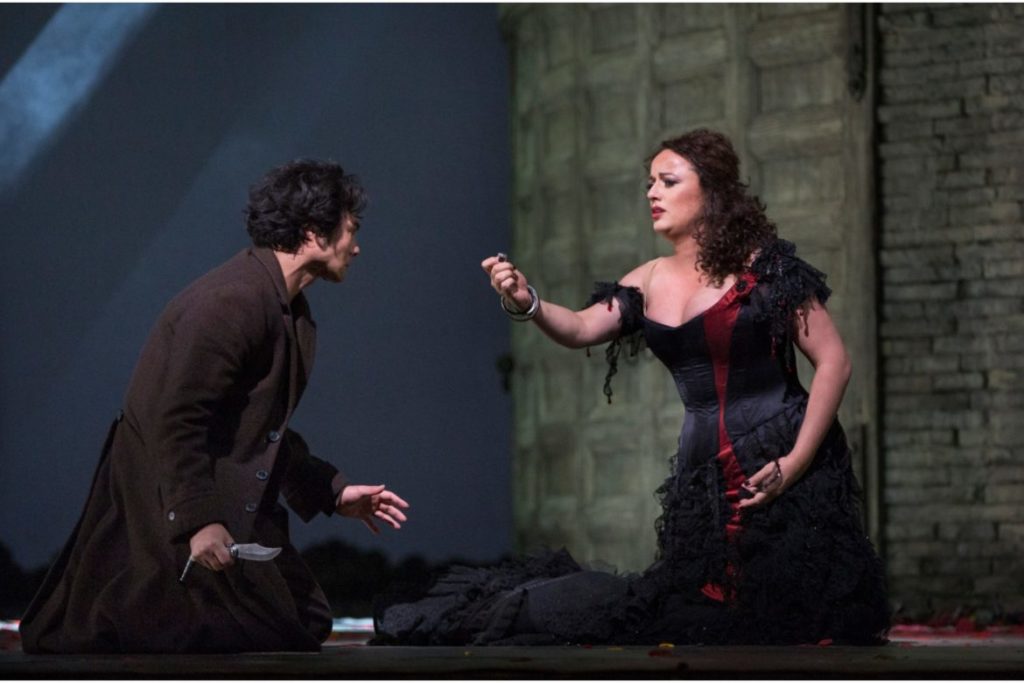
“In the title role, Clémentine Margaine was a seductive firebrand.
From her entrance in Act one, her expressions and gestures were charged with a tension well-suited to the timeless man-eater, and a number of dramatic and musical directions seemed to emphasize Margaine’s seductive quality.
While toying with Zuniga during the Habanera, Margaine boldly lowers herself into a deep squat, almost upon her knees, to brush him with the rose. While this direction lingered somewhat, easing the shock of the moment, Margaine’s portrayal strongly suggested her goal was not to shock, but to control, even with all eyes upon her.
A significant instance of this came in Act two’s “Chanson Boheme,” where the tempo of the orchestra felt relaxed, even during the animato sections of the number. The overall feeling this created was that of music which seduces the heart and body rather than seizes it with maddening rhythm, and Margaine capitalized greatly on this.
Another more sublime moment came in Act three where she joins Frasquita and Mercedes in reading their fortunes. Margaine’s dire rendition, featuring no shortage of fearful vibrato, was hauntingly appropriate for this fatalistic number.”
“Cleméntine Margaine, a French mezzo soprano, has established herself as a definitive Carmen in productions around the world. She reprises the role at the Met after her success here last year in the same production when unexpectedly called on as an understudy. Margaine has a big voice, alternately steely and sensual, which is capable of projection to the furthest reaches of the house. She can also act convincingly and brought real dramatic depth to Bizet’s femme fatale. Her account of the Act I Habanera: ‘L’amour est un oiseau rebelle’, was smokily resonant, although not always pitch perfect.”
“Reprising the role with which she made her 2017 company debut, Clémentine Margaine brought the same dramatic energy and expressive portrayal that made her first appearance so memorable. Few are the singers who can project such rich inner life while standing silently on the apron.”
New York Classical Review